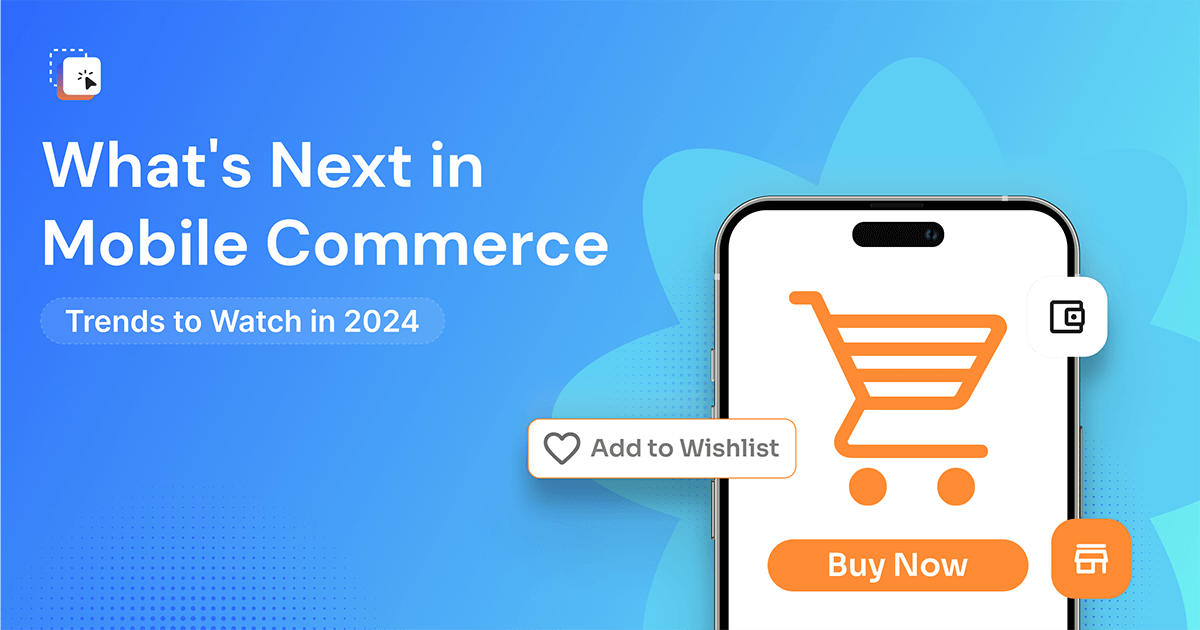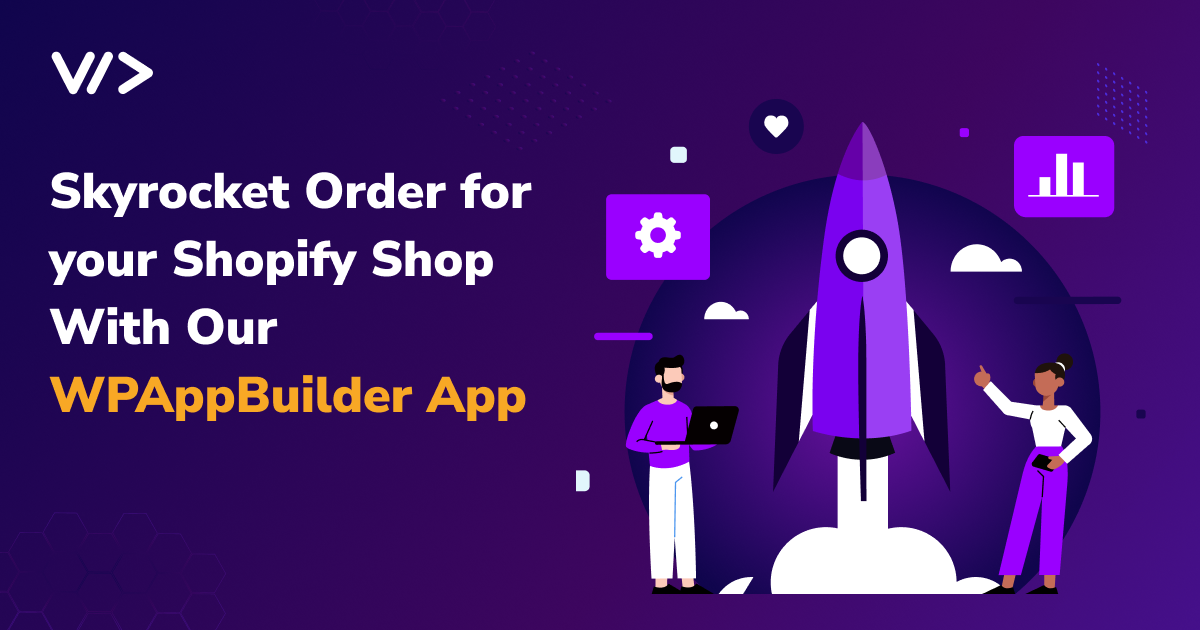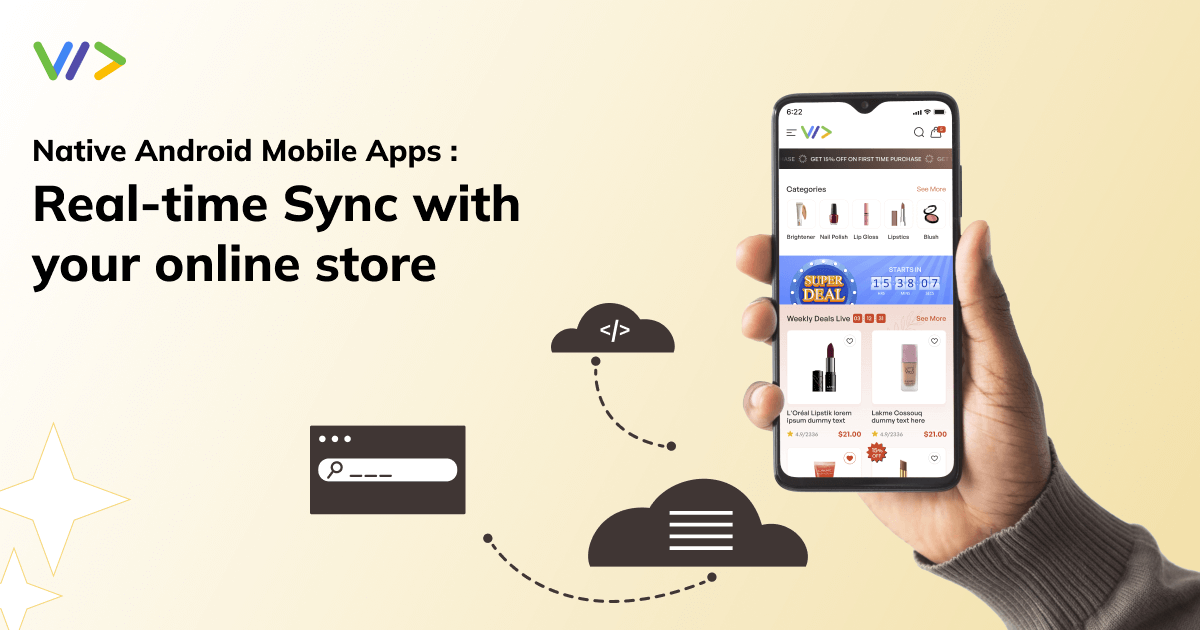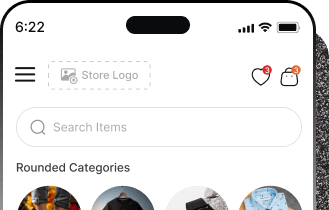Mobile Apps: The Game-Changer for Sustainable Growth in Shopify E-commerce

Shopify stands as a prominent and steadily expanding e-commerce platform, which empowers Shopify e-commerce businesses to sell their products directly to consumers. The Shopify platform has made digital sales processes much easier and removed geographical barriers, making it advantageous for both online and brick-and-mortar enterprises.
So, what is the reason Shopify e-commerce businesses need a mobile app?
In this blog, we will discuss the importance of mobile apps and the e-commerce growth flywheel.
Understanding an e-commerce Growth Flywheel
Historically, brands have depended on the sales funnel model, viewing the customer journey as a regular progression with clear starting and ending points.
The issues e-commerce companies are facing today include:
- Growing CAC (Customer Acquisition Costs), lower returns, and strict ad tracking protocols.
- Complicated checkout processes force customers to abandon their carts.
- The high level of competition makes it difficult to convert customers into loyal customers.
- The absence of comprehensive insights into customer behaviors and preferences undermines the desired level of personalization.
The e-commerce flywheel model directly addresses these challenges and views the customer journey as a constant loop. This self-reinforcing system helps e-commerce brands grow continuously. It focuses on key components that strengthen one another that allows the wheel to spin faster and more effectively, leading to increased profits and attracting a large customer base with each rotation.
A satisfied customer keeps the flywheel spinning through repeat purchases, favorable reviews, and positivity in word-of-mouth, which consistently entices new customers and propels sales.
How Does the E-commerce Flywheel Work?
The e-commerce growth flywheel is based on five principles that include customer acquisition, customer engagement, conversion & sales, customer retention & loyalty, and advocacy & referral. Let’s see how it works.
Customer Acquisition:
This is for bringing more customers to your Shopify store. With the help of SEO techniques, social media marketing, and advertising for your target audience, you can enhance visibility and drive consistent traffic to your Shopify store.
Make sure that your strategies and marketing efforts are planned to capture the attention of the right audience, those who are most inclined to engage with your brand and become buying customers.
Customer Engagement:
The second phase is all about engaging customers. In this phase, you need to create an engaging experience for your customers by providing user-friendly Shopify design and content that resonates with them. Moreover, enhance it by adding interactive elements to make it personalized. Through the strategic use of email marketing, social media practices, and loyalty programs, your brand can develop a strong relationship with potential customers.
Conversion and Sales:
The third phase of the e-commerce flywheel focuses on increasing conversions and sales. At this stage, you are supposed to optimize the ongoing process regularly to enable your Shopify store to provide intuitive navigation, a seamless checkout process, and effective call-to-action (CTA’s).
Try to analyze customer behavior when they visit your site, and based on it, plan your strategies.
Customer Retention and Loyalty:
Increased customer retention and loyalty keep the wheel turning. Consider post-purchase interaction, delivering top-notch customer service, and responding to customer feedback quickly. Start implementing loyalty programs and offering lucrative deals. Additionally, keep in touch with customers regularly through communication channels to increase customer retention figures.
Recommendations and Referrals:
This final phase is crucial. Happy customers are apt to endorse your brand, thereby introducing new customers into the loop and kickstarting the cycle. Achieve this goal by instituting a systematic and automated review solicitation process, crafting shareable content to ignite virality and educate your community, and leveraging referral programs to turn satisfied customers into brand advocates.
Why Mobile Apps Are Important for Your E-commerce Growth
Integration with Social Media Platforms:
Mobile applications effortlessly integrate with various social media platforms. Customers find it easier to share products and experiences, thus driving more people to engage.
Reach and Accessibility:
Mobile stores often provide a frustrating shopping experience due to limited screen space and cumbersome interfaces, whereas apps effectively address these issues. As a large majority of internet users rely on mobile devices to visit websites and do online shopping, a mobile app helps your Shopify store reach out to them directly and drive huge sales.
Implement Push Notifications:
Push notifications offer unmatched capability in driving immediate and direct traffic to specific pages within your app. Push notifications prove effective on various occasions, be it announcing a new product, promoting a special offer, or sending a cart reminder.
Offer Personalized user experience:
Mobile applications can gain access to detailed user data that helps store owners give customers personalized browsing, shopping experiences, and relevant product recommendations, resulting in enhanced customer engagement.
Intuitive User Interface:
In comparison to mobile websites, mobile apps offer users a more responsive and intuitive interface, which can lead to a substantial improvement in user experience and engagement.
Enhanced Conversion:
Honestly speaking, mobile apps yield higher conversion rates than mobile websites as they deliver quicker performance, convenience, and personalized experiences.
Seamless Checkout:
With mobile apps, checkout processes are quicker and more secure, featuring options like one-click checkout, ultimately reducing cart abandonment and increasing sales.
Implement Loyalty Programs:
User retention is essential for the constant growth of e-commerce businesses, and now it has become a necessity to stay ahead of the competition. With mobile app integration, tracking and automating subscriptions and membership programs becomes effortless, promoting repeat purchases.
Offer Exclusive Deals and Features:
Presenting exclusive offers or unique features within the mobile app can drive customers to retain and consistently use it. Such offers strengthen your brand image.
In-App Customer Support:
Offering immediate and 24/7 customer support via live chat boosts both customer satisfaction and loyalty. Allowing easy access to FAQs can also help earn customer trust. This method is also effective in handling pre-purchase anxiety, providing customers with timely updates about their placed orders, and convincing users they do not uninstall your app.
Smooth Social Sharing Process:
Including easy sharing options for customers to share your trending products with friends and family that can amplify word-of-mouth referrals.
Referral Programs:
Similar to loyalty programs, integrating in-app referral programs can provide incentives for users to drive new customers to your Shopify store mobile app.
Build a Strong Community:
Implementing social functionalities such as forums or community boards has the potential to cultivate a strong sense of community among users, nurture loyalty, and enhance engagement.
User-Generated Content:
With a mobile app, it is easy to promote and display user-generated content, such as reviews and photos, on product pages, which can boost credibility and draw in new customers.
Wrapping Up:
In sum, the e-commerce growth flywheel provides a potent formula for driving sustainable business growth for your Shopify store, with the pivotal role of mobile apps becoming ever more evident in today's landscape. In today’s cut-throat e-commerce competition, integrating mobile apps is an effective way to grow your Shopify e-commerce business.
Related blogs



